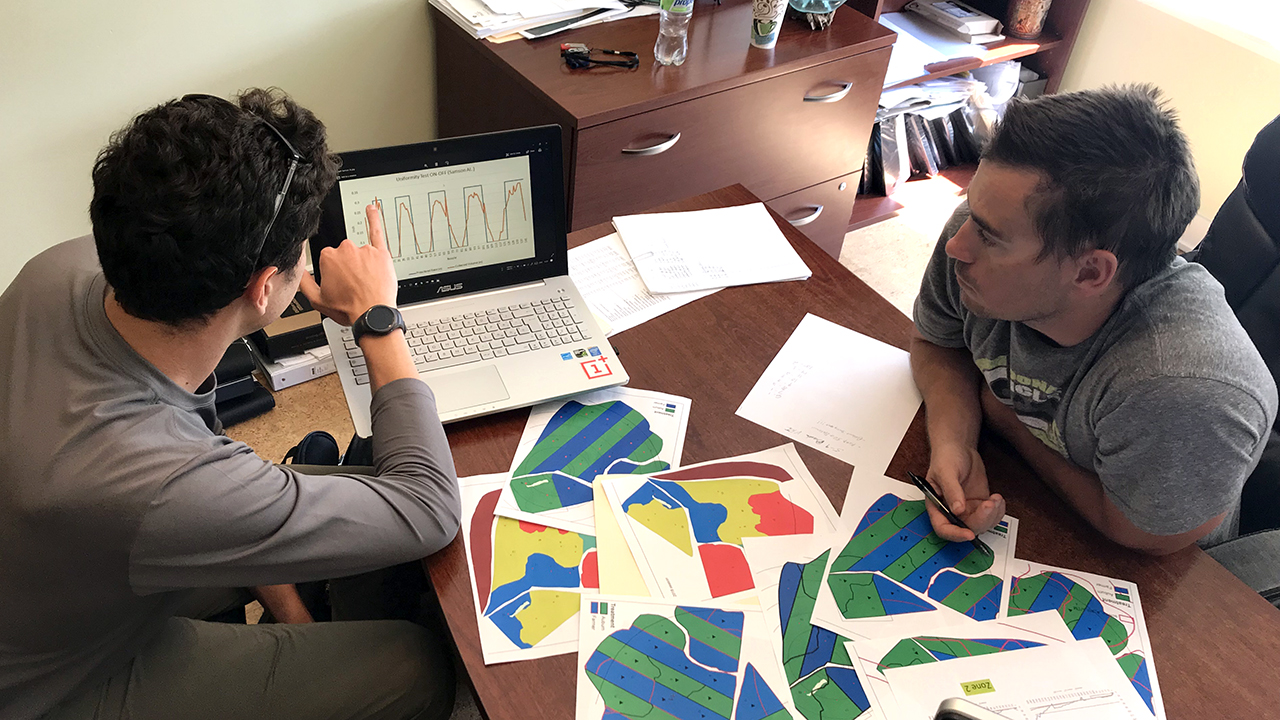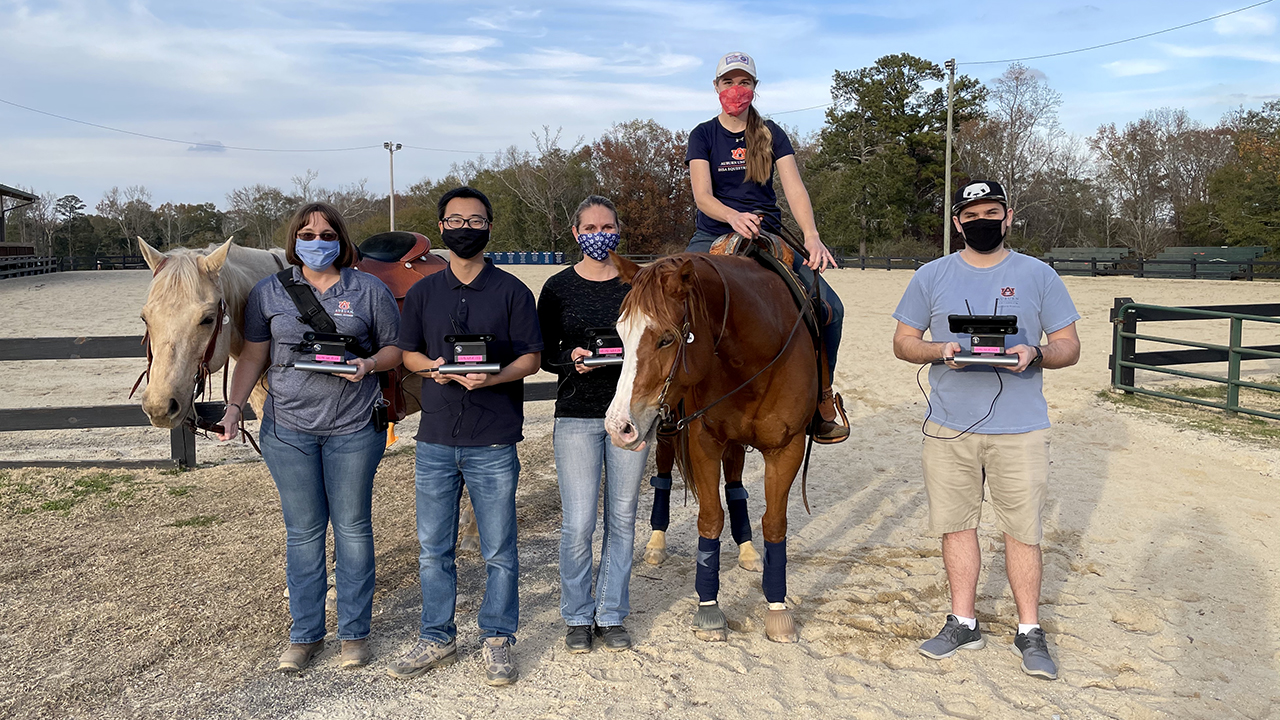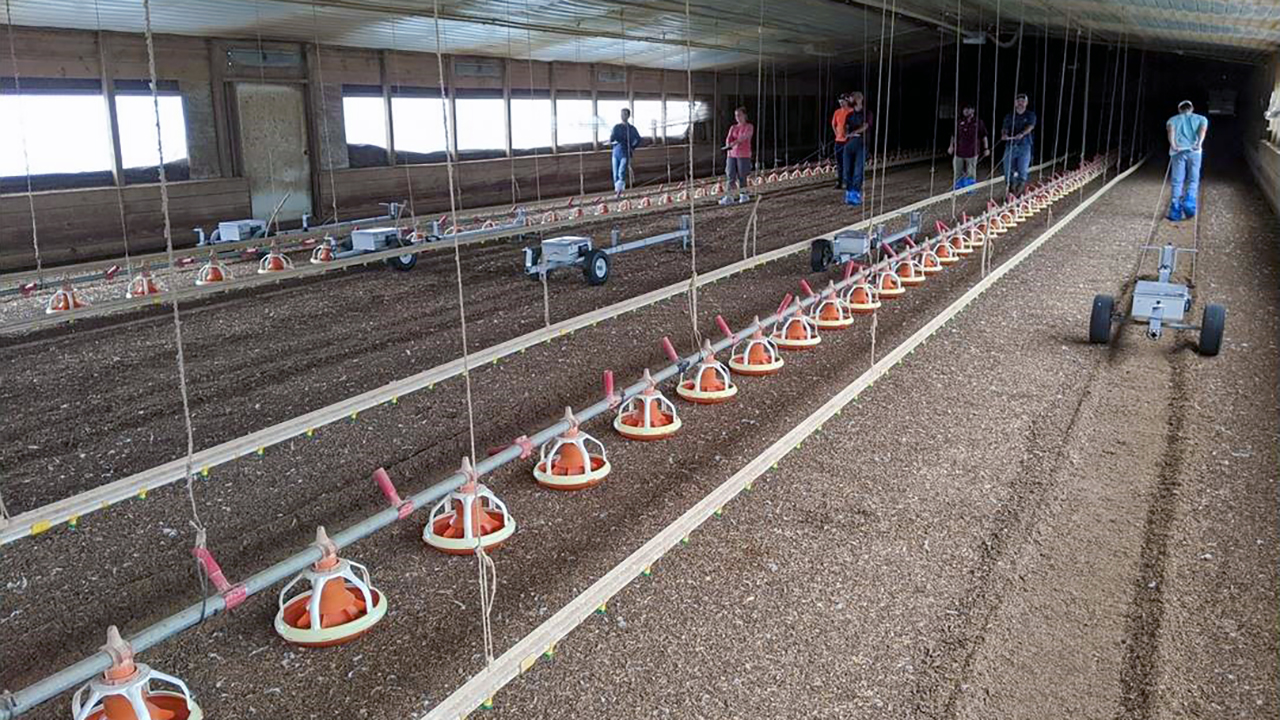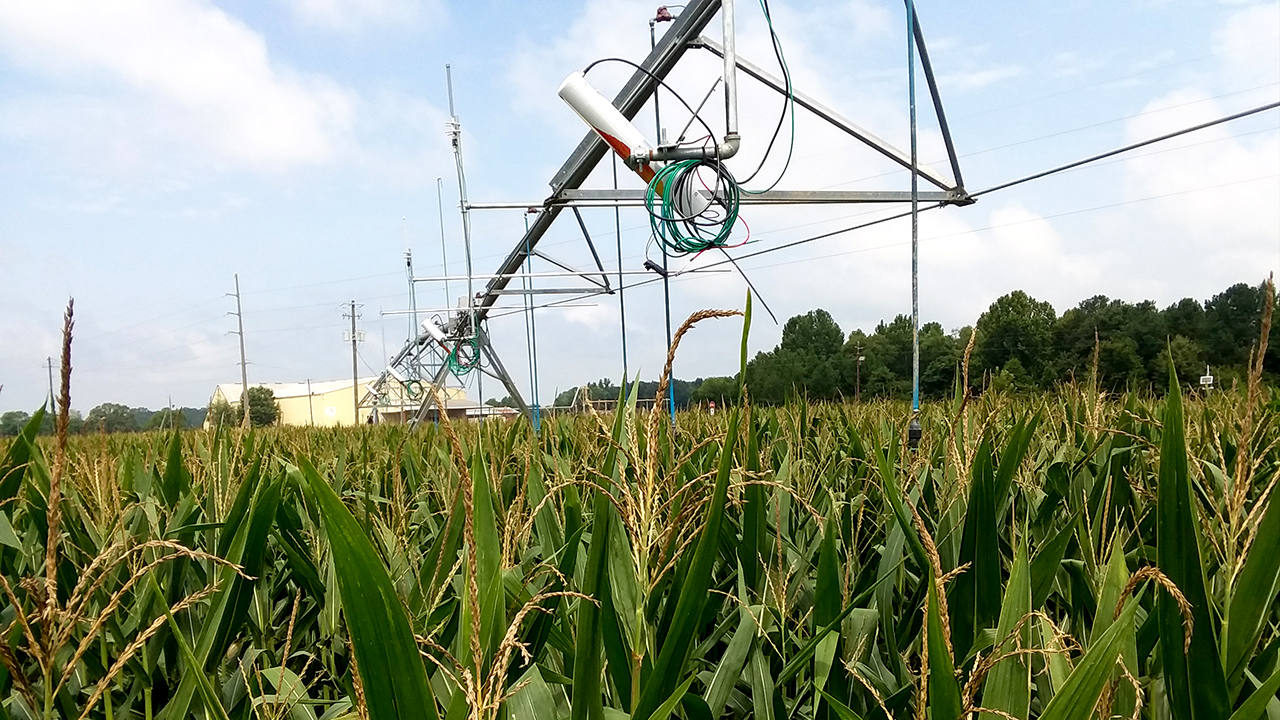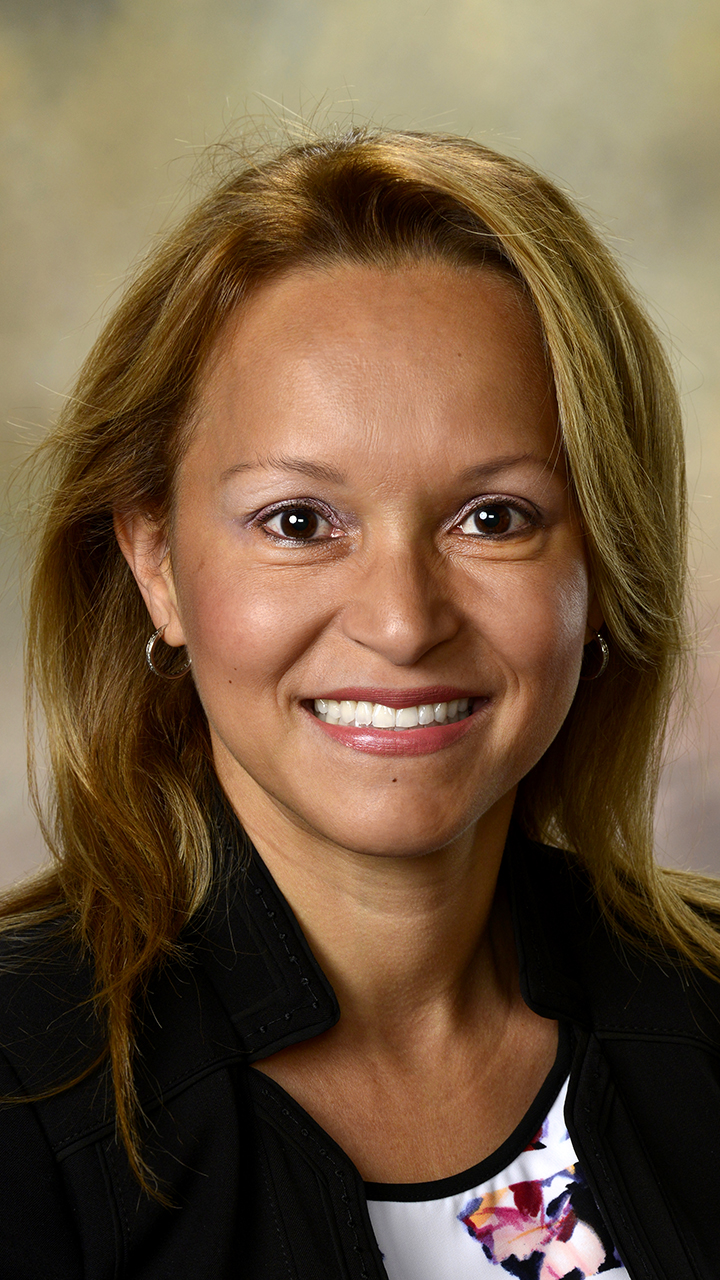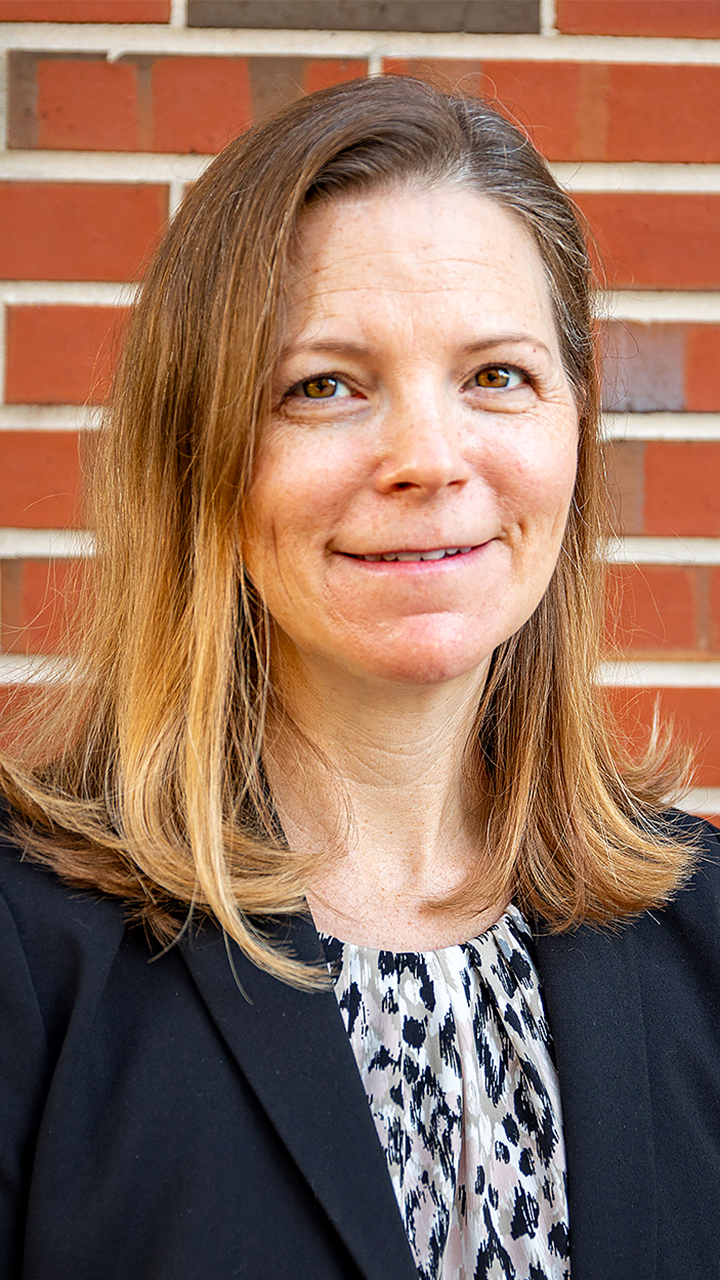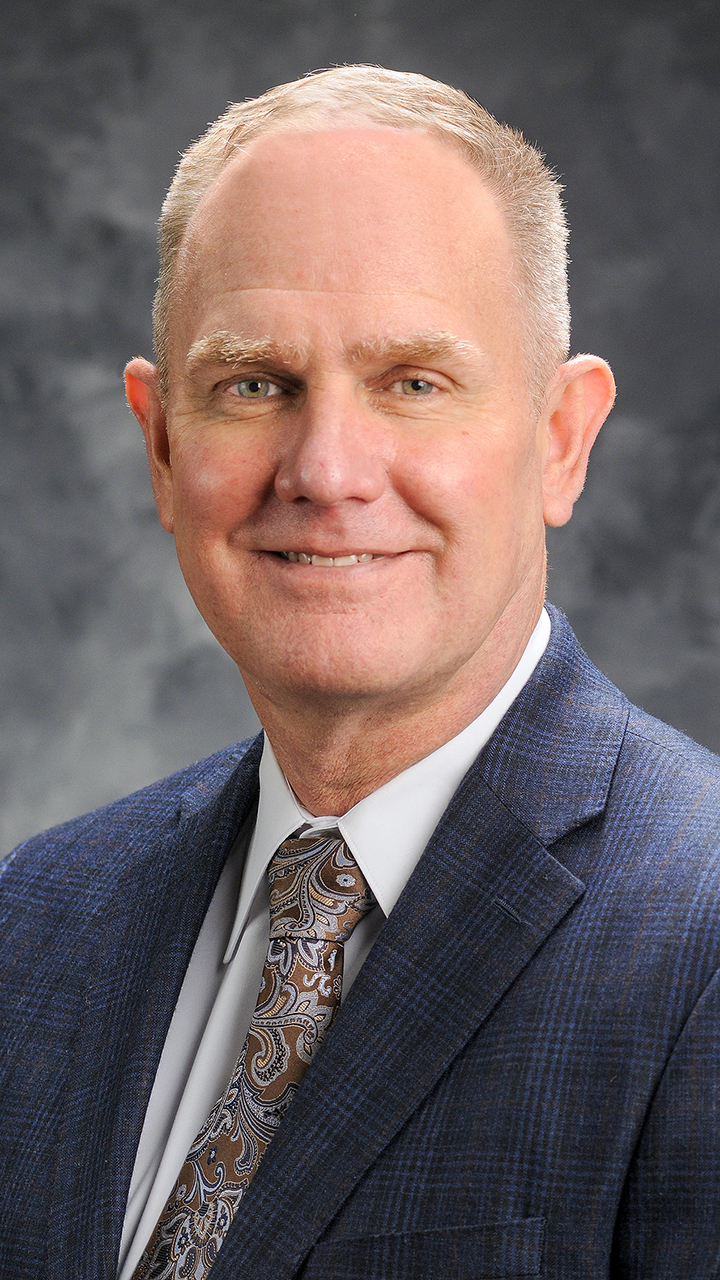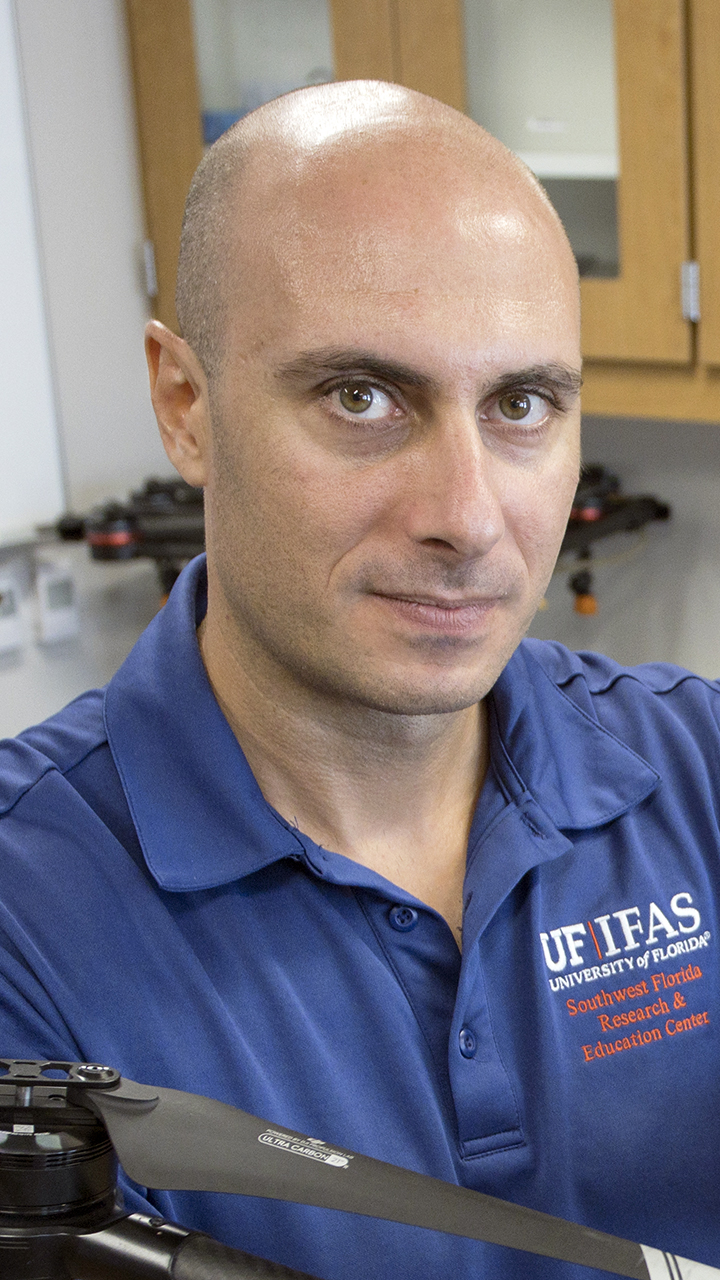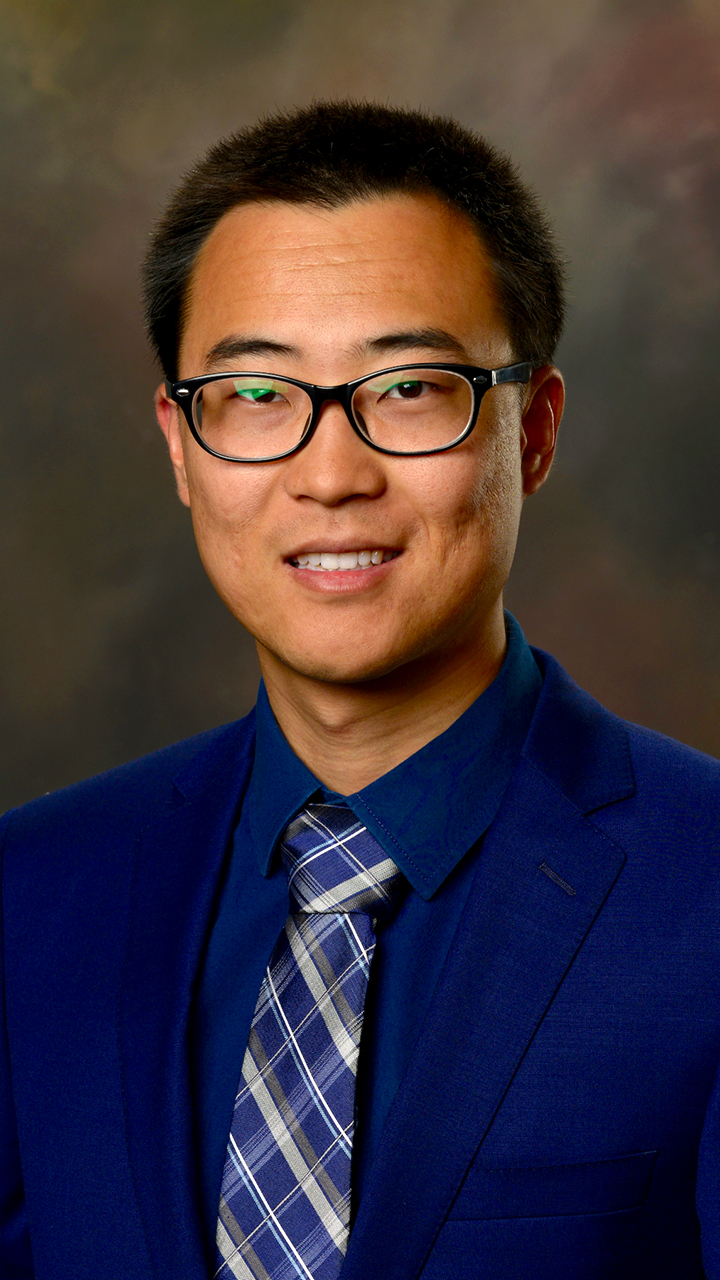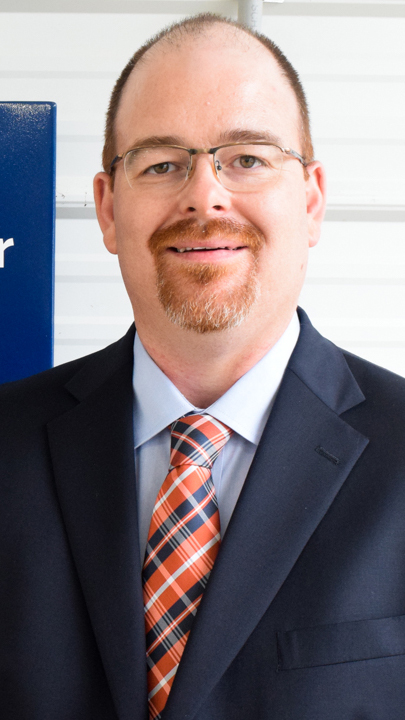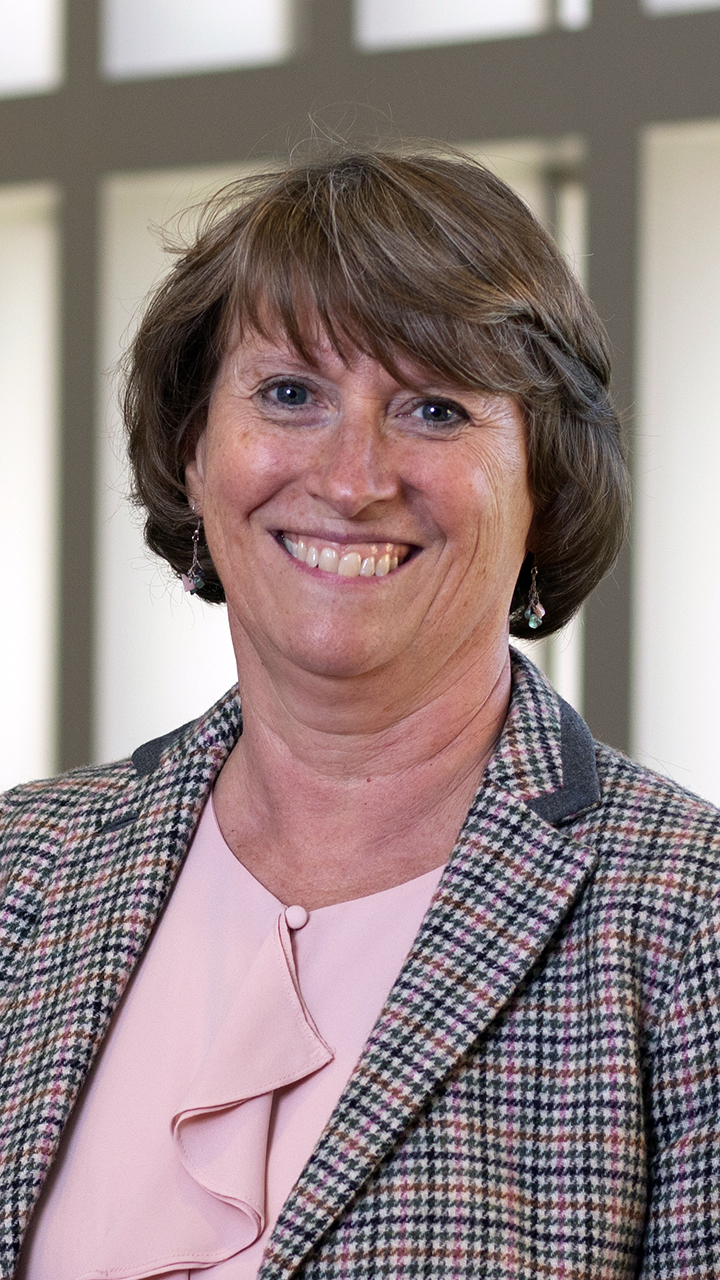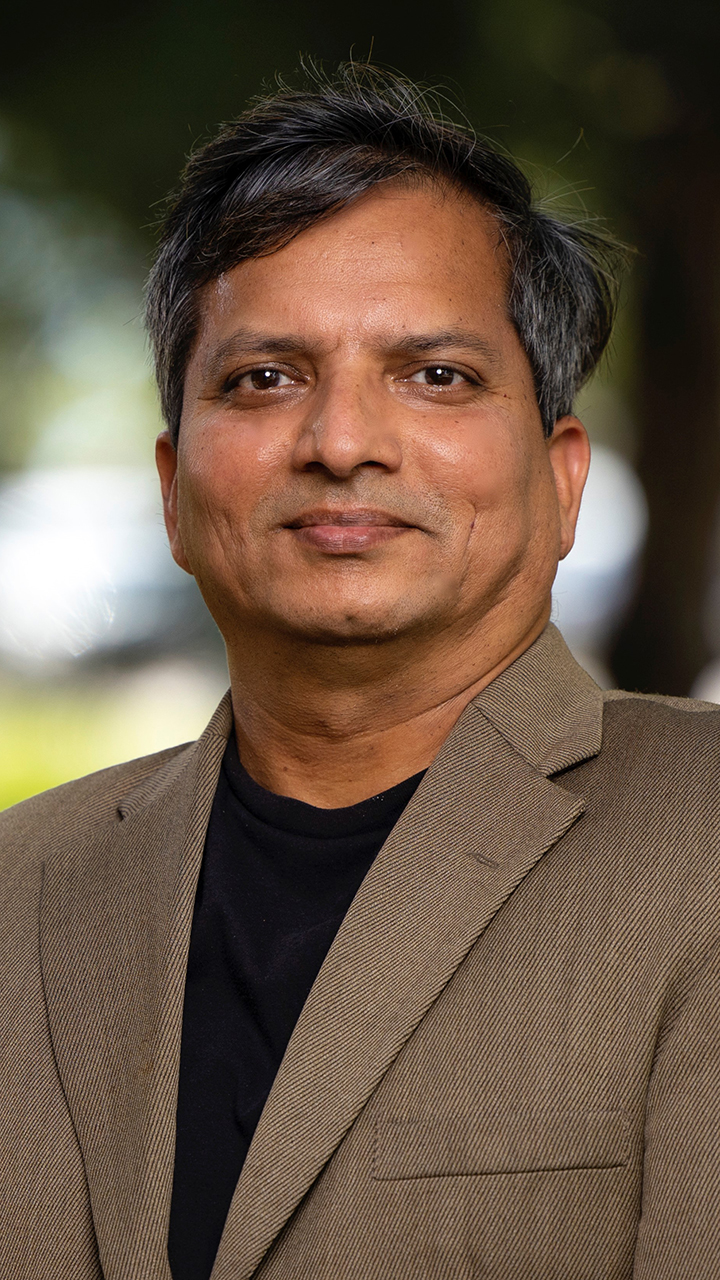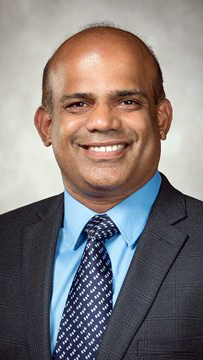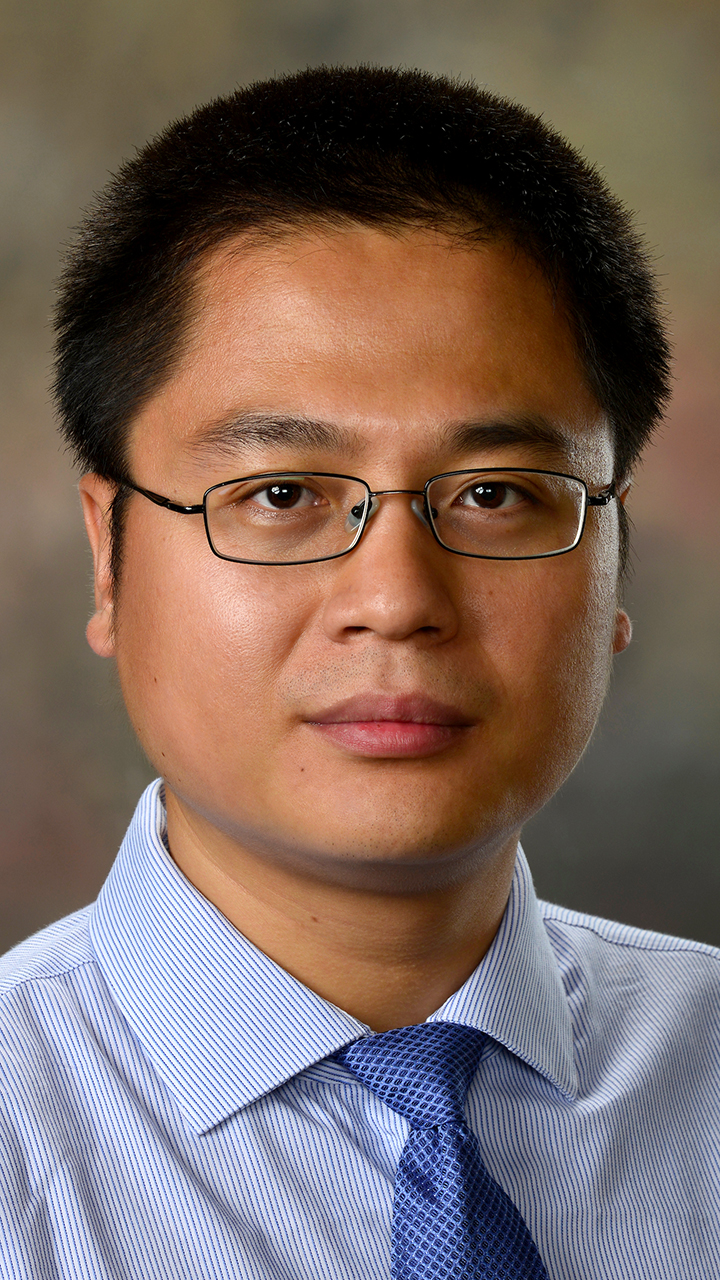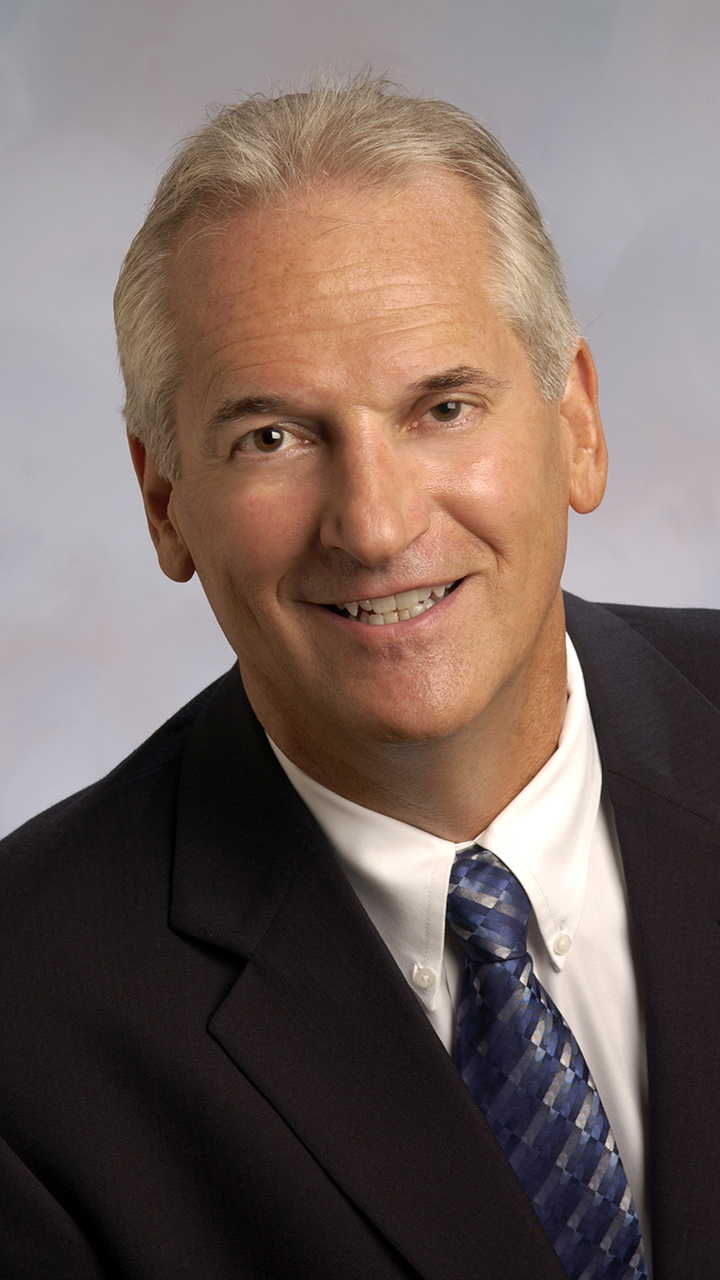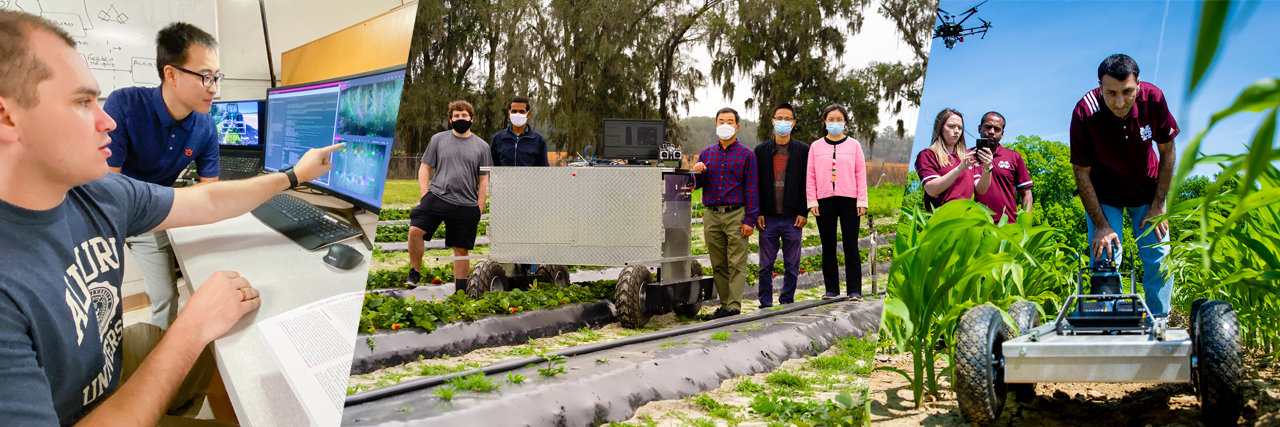
Envisioning 2050 in the Southeast: AI-Driven Innovations in Agriculture
A joint effort from all the land grant universities in the southeast. Funded by the USDA National Institute of Food and Agriculture.
Event Dates: March 9-11, 2022
Artificial intelligence (AI)-enabled decision support systems, automation and robotics have the potential to transform agriculture in the Southeast. Current challenges of growing population, climate change, water supply demands, shortage of labor, emerging pests and diseases, producing more with less, and customer demand for sustainable products place stress on the future of Southeastern agriculture. However, incorporating AI into agriculture and food systems in the region can improve the productivity, efficiency and sustainability of agricultural practices and post-harvest processing, strengthen animal and crop breeding, reduce risks from pest and diseases, increase the quality and safety of food, strengthen farmers’ advisory systems, and improve the resilience of agriculture in light of climate change.
Universities and this industry are working on AI-enabled technologies and techniques such as new decision support tools, machinery for production management, improvement of biodiversity and conservation, and precision application of agricultural inputs, among others. Southeastern university teaching efforts in AI have also been strengthened in recent years.
Considering these academic and production-system advancements, our conference will build momentum for AI in agriculture. Specific emphases will focus on projects and applications within the Southeast agricultural production area, and projects developed in close collaboration with the region’s agricultural producers and food production industry.
Join us Virtually
In-person participation is limited due to the capacity of the conference venue (400 people maximum). However, we will be offering a virtual option for people that are interested and cannot attend in person. This virtual option will be a limited version of the in-person conference.
Virtual participants will have access to plenary and breakout sessions. Virtual access will run concurrently with the in-person conference (March 10-11).
Any questions related to the virtual meeting could be directed to: Adam McGhee acm0049@auburn.edu
Why should you attend?
University faculty and students, industry members, and representatives of different stakeholder groups will share expertise, vision and needs for the development of an AI-driven agriculture in the Southeast. Participants will also learn about the development of AI in agriculture at various universities and the growth of resources, infrastructure and personnel available for AI and related technology in agriculture and natural resources. It is expected that multi-institution and multi-disciplinary collaborations will be formed from this interactive exchange.
SHAPING THE FUTURE OF AGRICULTURE THROUGH INNOVATION
This conference will provide a space for networking and future collaboration opportunities, which is key to advance innovations and strengthen the future of agriculture. We hope the attendees of this conference will grow in knowledge of AI uses and form a plan to advance AI applications in agriculture in our region.
Conference Schedule
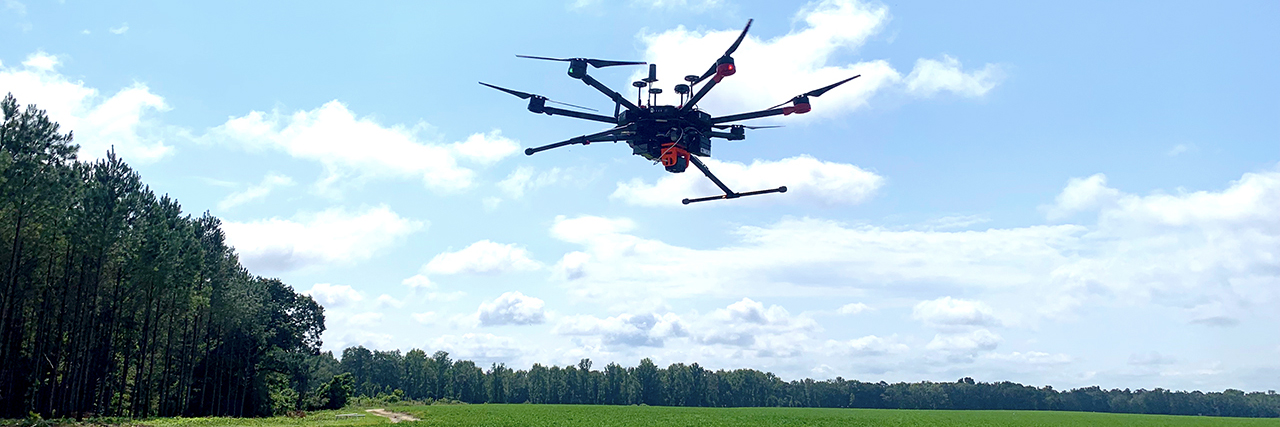
Wednesday 3/9
Early Registration
- 12:00 PM – 6:00 PM – Registration (The Hotel at Auburn University Hotel and Dixon Conference Center, Foyer)
- 2:00 PM – 5:00 PM – Pre-conference Workshop: Successful case studies of AI techniques in Agriculture (Terrace Room).
Moderators: Thanos Gentimis and Timothy Young
From weather to climate to crops: a hands-on AI discovery session – John Gottula and Shelly Hunt (SAS)
Introduction to Machine Learning Model Comparisons, Applications in Agriculture – Thanos Gentimis (Louisiana State University)
Thursday 3/10
- 7:00 AM – 8:30 AM – Registration (Foyer)
- 8:00 AM – 8:10 AM – Welcome (Auditorium)
- 8:10 AM – 8:30 AM – Opening remarks by Dr. Christopher Roberts – Dean, Samuel Ginn College of Engineering, President-elect Auburn University
- 8:30 AM – 9:30 AM – Open Plenary: Re-imagining the future of food production: the innovations that will change agriculture (Auditorium).
Moderator: Kati Migliaccio
1. Geospatial AI At Scale for Digital Agriculture – Hendrik Hamann – (IBM)
2. The Future of Automation in Production Agriculture – Mark Chaney (John Deere) - 9:30 AM – 10:00 AM – Coffee & networking
- 10:00 AM – 11:40 AM – Breakout Sessions I:
Breakout Auditorium, AI applications in crop management
Moderator: Ioannis Ampatzidis
- 10:00 AM – Democratization of Geospatial Data for AI in Agriculture – Jinha Jung (Purdue University)
- 10:20 AM – Enable Precision Agriculture using AI and Computer Vision – Mitesh Patel (NVIDIA)
- 10:40 AM – Market Adoption of AI for precision farming: Insights, Successes, and Challenges – Matthew Donovan (Agroview AI)
- 11:00 AM – Discussion
- 11:20 AM – Discussion
Breakout Terrace Room, AI in food processing and supply chain
Moderator: Jeyam Subbiah
- 10:00 AM – Machine Learning-based Perception for Robotics in Poultry – Doug Britton and Ben Joffe (Georgia Tech)
- 10:20 AM – AI-Enabled Innovations in Validation of Sanitation and Detection of Pathogens – Nitin Nitin (UCDavis)
- 10:40 AM – Leveraging data towards and improved food supply chain: the promise and challenges of intelligent systems – Chase Rainwater (University of Arkansas)
- 11:00 AM – Vision-Guided Robotics and AI for Smart Food Manufacturing – Yang Tao (University of Maryland)
- 11:20 AM – Discussion
Breakout Oak Room, AI-related innovation in the classroom
Moderator: Gopal Kakani
- 10:00 AM – Hacked the flow: How one biological and agricultural engineering student accelerated models and learnings – Shelly Hunt (North Carolina State University and SAS)
- 10:20 AM – Digital Agriculture: From Data to Actions – Thanos Gentimis (Louisiana State University)
- 10:40 AM – The Effect of Academic Preparation on Computational Thinking in the First-Year Engineering Experience – Janie McClurkin Moore (Texas A&M University)
- 11:00 AM – Education That Supports Digital Agriculture – Bruce Erickson (Purdue University)
- 11:20 AM – Discussion
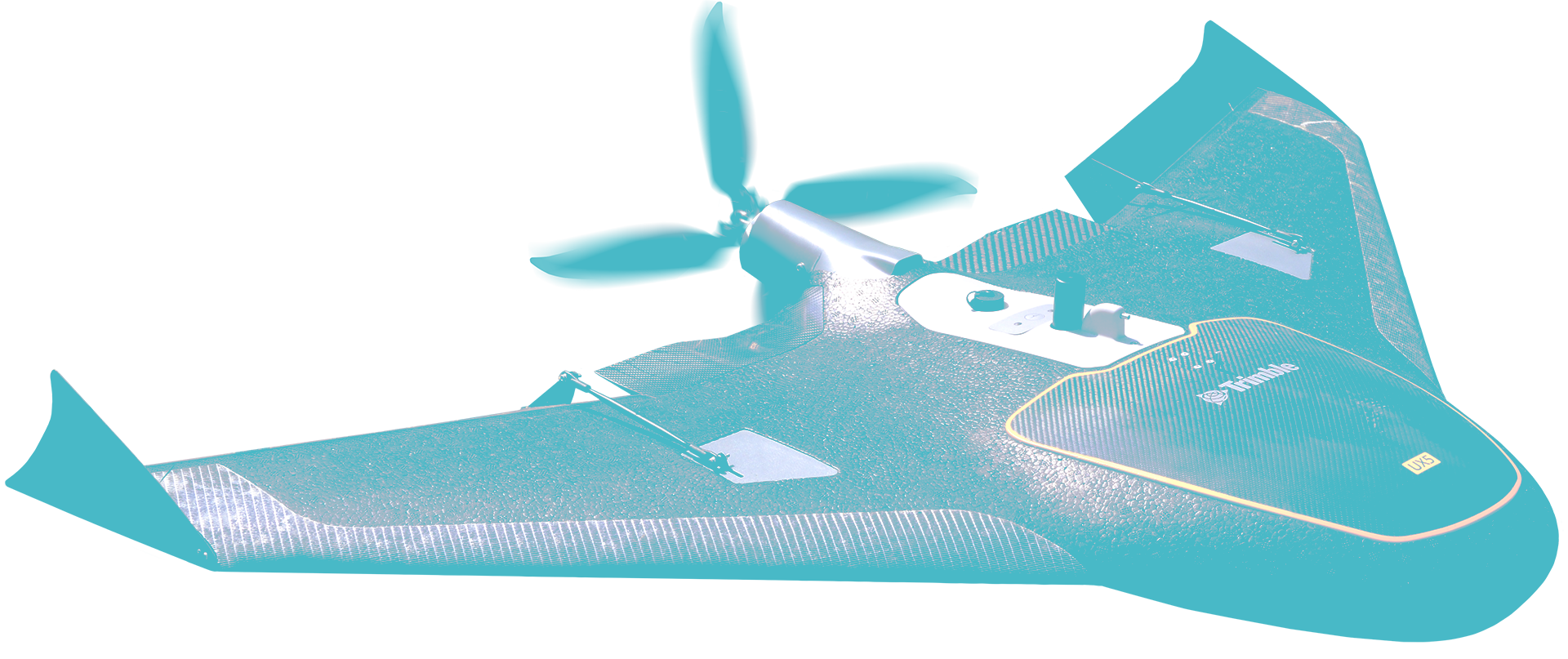
- 11:40 AM – 1:00 PM – Lunch and presentations by sponsors (Grand Ballroom)
- 1:00 PM – 1:45 PM – Panel: Nexus of Academia, Industry, and Government to realize the power of technology and AI in agriculture – resources and collaboration needed (Auditorium).
Chris Delhom (USDA-ARS), Andres Ferreyra (Syngenta), John Sheppard (Montana State University)
Moderator: Brenda V. Ortiz - 1:55 PM – 3:00 PM – Facilitated Working Sessions I:
Working Session Auditorium
- 1:55 PM – 3:00 PM – How to strengthen collaboration among universities and between universities and industry.
Moderator: Ed Barnes
Working Session Terrace Room
- 1:55 PM – 3:00 PM – Needed innovation (near-term and long-term) to meet the challenges and remain competitive and profitable / Barriers to implementation.
Moderator: Alex Thomasson
Working Session Oak Room
- 1:55 PM – 3:00 PM – Changes in teaching and extension to meet the needs and demand of AI and automation-driven agriculture.
Moderator: Brenda Ortiz and Khaled M Rasheed
- 3:00 PM – 3:10 PM – Coffee and networking
-
3:10 PM – 4:50 PM – Breakout Sessions II
Breakout II Auditorium, AI for climate resiliency and adaptations
Moderator: Di Tian
- 3:20 PM – Unravel the Relationship between Tropical Storm, Soil Moisture and Agricultural Drought, The Value of Machine Learning – Hamid Moradkhani (University of Alabama)
- 3:40 PM – Challenges and Needs for Deployable, Usable, Robust AI for Climate-adaptable Agriculture – David S. Ebert (University of Oklahoma)
- 4:00 PM – AI-driven environmental analytics for data-informed climate adaptation and resilience – Di Tian (Auburn University)
- 4:20 PM – Climate-smart approaches to improve resiliency to climate variability and change – Pam Knox (University of Georgia)
- 4:40 PM – Discussion
Breakout II Terrace Room, AI applications in agricultural extension
Moderator: Joseph E Quansah
- 3:20 PM – Achieving the vision of a Land grant University in a phone through AI, cloud computing and network effects – David Hughes (Pennsylvania State University)
- 3:40 PM – Data-driven farming intelligence in the developing world – Daniel Jimenez (CGIAR)
- 4:00 PM – Usefulness of publicly available datasets for pest management using artificial intelligence (AI) technologies – Dharmendra Saraswat (Purdue University)
- 4:20 PM – Digitizing Agricultural Extension Recommendations through the Open Source, Ag-Rec Server – Kendall Kirk (Clemson University) and Brandy Byrd Gantt (IBM)
- 4:40 PM – Discussion
Breakout II Oak Room, University Efforts to Advance AI application to Southeast Agriculture
Moderator: Gary Thompson
- 3:20 PM – Panel 1: AI-related research status and programmatic updates – Alex Thomasson (Mississippi State University), Juan Landivar (Texas A&M), Changying Li (University of Georgia)
- 4:00 PM – Panel 2: Administrative outlook and strategic directions to advance AI applications to Southeast Agriculture – Damian Adams (University of Florida), Khaled M Rasheed (University of Georgia), Susan Duncan (Virginia Tech University), Steve Lommel (North Carolina State University)
- 4:40 PM – Discussion
- 4:50 PM – 5:20 PM – Poster setup
- 5:30 PM – 7:30 PM – Poster Session and Reception (Legacy Ballroom and Foyer)
Friday 3/11
- 7:30 AM – 8:00 AM – Coffee and networking
- 8:00 AM – 9:30 AM – Breakout Sessions III:
Breakout III Auditorium, AI applications in breeding
Moderator: Yin Bao
- 8:00 AM – Label your data with this one weird trick: methods for addressing the digital data labeling bottleneck – Dr. Alina Zare (University of Florida)
- 8:20 AM – 3D plant mapping using machine learning approaches – Changying Li (University of Georgia)
- 8:40 AM – Going forward: Genomics, phenomics, machine and deep learning in breeding programs – Karan Sandhu (Bayer)
- 9:00 AM – All models are wrong, some models are useful: breeders’ guide to statistics versus machine learning – John Gottula (SAS)
- 9:20 AM – Discussion
Breakout III Terrace Room, AI applications in livestock management
Moderator: Jeremiah Davis
- 8:00 AM – Practical considerations for precision animal management – Tami Brown-Brandl (University of Nebraska Lincoln)
- 8:20 AM – Improving Broiler Performance & Welfare with Cumberland Scout Mobile AI Platform – Scott Becker (AGCO)
- 8:40 AM – Smart data versus big data for real-time monitoring of living organisms – Daniel Berckmans (Katholieke Universiteit Leuven)
- 9:00 AM – Precision farming with MTech Systems – Simon Cohen (MTEch)
- 9:20 AM – Discussion
Breakout III Oak Room, Social implications of AI-driven agriculture / Data security, data privacy, ownership, and ethics
Moderators: Susan Duncan and Ziwen Yu
- 8:00 AM – Emerging AI and machine learning technologies and the challenges of developing secure computing in the agricultural sector
– Hossein Sarrafzadeh (North Carolina A&T University) - 8:20 AM – Envisioning Adoption Pathways for AI-driven Innovations in Agriculture (James Lowenberg-DeBoer and Harper Adams University)
- 8:40 AM – Drivers of Farmer Innovations and Data Privacy Preferences – Meredith Niles (University of Vermont)
- 9:00 AM – Discussion
- 9:35 AM – 9:45 AM – Coffee and networking
- 9:50 AM – 10:35 AM – Panel: Putting research and technological advances in the hands of stakeholders what we should do to convert research to practice (Auditorium)
Moderator: Alex Thomasson
Ioannis Ampatzidis (University of Florida), Ed Barnes (Cotton Incorporated), Will Gilmer (Gilmer Dairy Farm), David Hughes (Penn State University) - 10:45 AM – 11:45 AM – Facilitated Working Sessions II:
Working Session II Auditorium, Governmental infrastructure needed to realize the full potential of innovation
Moderator: Susan Duncan
Working Session II Terrace Room, Infrastructure, cost, and personnel resources needed for AI innovation
Moderator: Margarita Velandia
Working Session II Oak Room, Needs for policy change
Moderator: Vijaya Gopal Kakani
- 11:45 PM – 1:30 PM – Lunch & Closing Plenary: AI Directions in Agriculture – Observations from the conference and new programming at USDA-NIFA (Grand Ballroom) – Steven J. Thomson (National Program Leader with USDA-NIFA)
- 1:35 PM – 2:30 PM – Concluding remarks from conference organizers
Speakers
Opening Plenary: Re-imagining the future of food production – The innovations that will change agriculture

Hendrik Hamann – Chief Scientist for Future of Climate, IBM Corporation
Dr. Hendrik Hamann is a Distinguished Research Staff Member and Chief Scientist for the Future of Climate in IBM Research. He received his PhD from the University of Goettingen in Germany. He is the winner of 2016 award of Industrial Applications of Physics of the American Institute of Physics and a Fellow of American Physical Society. Hendrik has authored more than 140 scientific papers and holds over 160 patents. His current research interest includes big data analytics, AI, ML and its applications to complex and large-scale physical systems such as agriculture, energy, weather and climate.
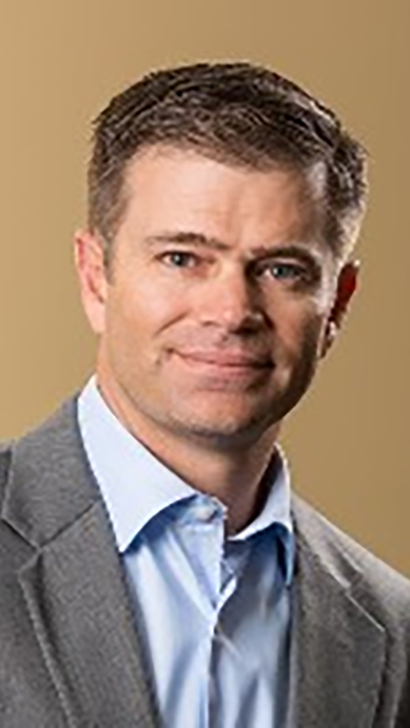
Mark Chaney – Engineering Manager, Automation Delivery for John Deere
Mark Chaney leads and inspires the Automation Delivery teams at Intelligent Solutions Group at John Deere, transforming the capability and capacity to deliver highly automated solutions for their customers. He started his career with John Deere in the summer of 1996 and has held many positions throughout his 22-year tenure, including increasing roles of responsibility in Combine / Harvesting product development and engineering.
Mark is native to Geneseo, IL, and him and his wife Laura have three sons: Grant, Will, and Luke. When he is not delivering automated solutions for John Deere customers, Mark enjoys designing and building, motor sports, shooting sports, boating, and fishing. He holds a BS in Agricultural Engineering from the University of Illinois.
Closing Plenary
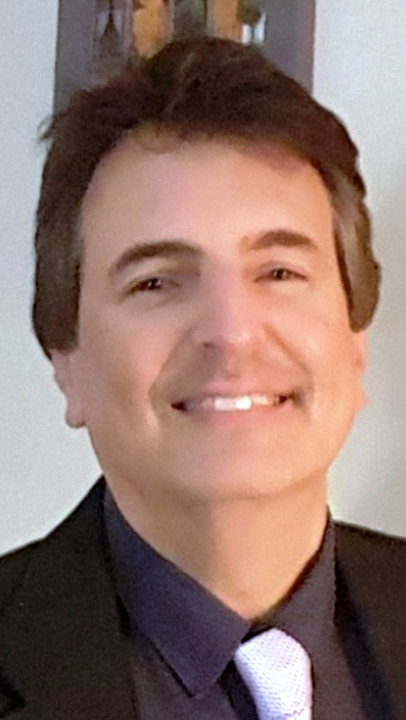
Steven Thomson – National Program Leader, USDA NIFA
Dr. Steven J. Thomson is National Program Leader (NPL) with the USDA National Institute Food and Agriculture (NIFA). He engages Universities, other federal agencies, and industry to provide national leadership in Capacity and Competitive Grant programs. The Research, Education, and Outreach programs he leads focus on engineering processes to improve systems relevant to agriculture. These include Engineering for Agricultural Production Systems and NSF-collaborative programs such as the National Robotics Initiative, Cyber-Physical Systems, and AI Institutes.
Dr. Thomson received his Ph. D from the University of Florida in the Ag. And Bio. Engineering Dept. and has background in aerial application of crop protection materials, irrigation management, water balance and crop modeling, decision support systems for agricultural management, sensing systems and electronics, precision agriculture, applied statistics, and agricultural safety. Dr. Thomson was incoming Associate Professor at Virginia Tech in the College of Engineering and had received the Alpha Epsilon Award for his Research/Extension program and Outstanding Faculty Award in the BSE Department. He was a Lead Scientist with the USDA ARS before joining USDA-NIFA in early 2016. He has authored or co-authored over 100 publications, two book chapters, and several Extension publications and software.
Confirmed Speakers
- Damian Adams (University of Florida)
- Yiannis Ampatzidis (University of Florida) – Assistant Professor, Precision Agriculture and Smart Machines
- Ed Barnes (Cotton Incorporated) – Senior Director, Agricultural & Environmental Research
- Scott Becker (AGCO)
- Daniel Berckmans (Katholieke Universiteit Leuven)
- Doug Britton (Georgia Institute of Technology) – Manager, Agricultural Technology Research Program, Image and Signal Processing for Agriculture
- Tami Brown-Brandl (University of Nebraska – Lincoln) – Professor. Precision Management of Animals
- Simon Cohen (MTEch)
- Chris Delhom (USDA-ARS)
- Mathew Donovan (Agroview AI)
- Susan Duncan (Virginia Tech University)
- David S. Ebert (University of Oklahoma) – Professor of CS and ECE, Gallogly Chair #3, Associate VP of Research and Partnerships, Director – Data Institute for Societal Challenges
- Bruce Erickson (Purdue University)
- Andres Ferreyra (Syngenta) – Data Asset Manager, Global Digital Agriculture
- Thanos Gentimis (Louisiana State University) – Assistant Professor, Data Analytics with a special interest in Machine Learning and Neural Networks
- Will Gilmer (Gilmer Dairy Farm) – Dairy Farmer
- John Gottula (SAS) – Director of Crop Science, Agriculture
- David Hughes (Penn State University) – Dorothy Foehr Huck and J. Lloyd Huck Chair in Global Food Security, PlantVillage, News
- Daniel Jimenez (CGIAR) – Professor and Leader Community of Practice Data-Driven agronomy
- Kendall Kirk (Clemson University)
- Pam Knox (University of Georgia) – Agricultural Climatologist
- Juan Landivar (Texas A&M University)
- Changying “Charlie” Li (University of Georgia) – Professor, School of Electrical and Computer Engineering
- Steve Lommel (North Carolina State University)
- James Lowenberg-DeBoer (Harper Adams University)
- Chris Martinez (University of Florida) – Associate Professor, Urban Water Resources
- Janie McClurkin Moore (Texas A&M University)
- Hamid Moradkhani (University of Alabama)
- Meredith Niles (University of Vermont) – Associate Professor, Food Systems
- Nitin Nitin (University California Davis) – Professor and Engineer, Food Science and Technology-Biological and Agricultural Engineering
- Mitesh Patel (NVIDIA) – AI/Robotics Researcher, Relationship Manager
- Chase Rainwater (University of Arkansas) – Professor, Expert in Supply Chain Logistics
- Khaled M Rasheed (University of Georgia)
- Dharmendra Saraswat (Purdue University) – Associate Professor, Data Science and Digital Agriculture
- Hossein Sarrafzadeh (North Carolina A&T State University) – Director of the Center of Excellence in Cybersecurity Research, Education and Outreach
- Shai Sela (Agmatix) – Chief Scientist at Agmatix, Agro-informatics innovation, Research and modeling lead
- John Sheppard (Montana State University) – Norm Asbjornson College of Engineering, Distinguished Professor, Director, Numerical Intelligent Systems Laboratory Gianforte School of Computing
- Yang Tao (University of Maryland) – Professor, Maryland Robotics Center
- Alex Thomasson (Mississippi State University)
- Di Tian (Auburn University)
- Alina Zare (University of Florida) – Professor, Electrical and Computer Engineering
PRE-CONFERENCE WORKSHOP
A Pre-conference workshop will be focused on “Successful case-studies of AI techniques in Agriculture”. This workshop will target undergraduate and graduate students as well as university faculty interested in getting an update on AI related data analysis methodologies.
BREAKOUT SESSIONS
Nine breakout sessions will cover multiple applications of AI and automation in agriculture and food systems. These concurrent sessions will address topics related to AI applications in:
- Crop management
- Food processing and supply chain
- Climate resiliency and adaptations
- Crop and animal breeding
- Livestock management
- AI -related innovation in classrooms,
- Applications in agricultural extension,
- Cutting-edge AI methods and technologies for research and teaching
- Social Implications of AI-driven agriculture
Other subjects that will be covered include AI innovation in classrooms, agricultural extension, and cutting-edge AI methods and technologies for research and teaching. Each breakout session will have at least one speaker from industry, academia, and stakeholder group.
POSTER SESSION
A Peer Review Poster session will highlight the work of undergraduate, graduate students, and/or individuals with less than five years postgraduate career-track experience. Abstracts submitted to the poster session that pass a peer review process will be selected for on-site presentation and the others will be invited to a virtual poster session.
As part of this poster session, participants will be invited to compete on the Cotton Incorporated Early Career Research Challenge. This challenge will invite participants to submit innovative, non-tested ideas that serve to advance AI in agriculture. Posters must succinctly present the background and need for the proposed AI application, the methodology that should be implemented to develop and test their proposed idea, and a section that will explain how the proposal will positively affect southeastern agriculture.
The awarded work will receive travel funds from Cotton Incorporated to attend a professional conference in 2022 to give a presentation on their proposed work. The travel funds award will be for an amount of $2,000.
Abstracts closed February 15, 2022.
Thanks for your submissions.
Finale & Take-a-way

CONFERENCE FINAL REPORT & SPECIAL COLLECTION
All the discussions and recommendations from participants will be compiled int a report that will be shared with USDA-NIFA, university administration, and participants.
In addition, some of the speakers will be invited to prepare manuscripts which will be compiled into the Journal of the ASABE Special Collection Artificial Intelligence Applied to Agricultural and Food Systems.
Sponsors
Platinum Sponsors


Gold Sponsors



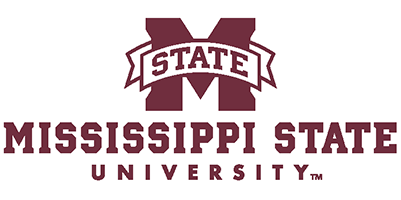



Silver Sponsors

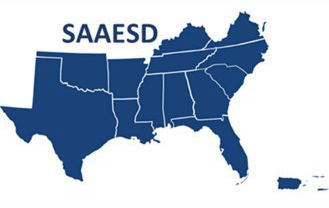
Bronze Sponsors


Main Organizers
Brenda V. Ortiz
Professor and Extension Specialist – Crop, Soil and Environmental Sciences Department. Auburn University
Precision Agriculture, Irrigation and Crop Growth Modeling
Kati Migliaccio
Professor and Chair – Agricultural and Biological Engineering Department, University of Florida
Water Conservation, Hydrology, and Irrigation in Agricultural, Natural, and Urban Systems.
Alex Thomasson
Professor and Head – Department of Agricultural and Biological Engineering, Mississippi State University
Robotics, Sensing and Artificial Intelligence for Agriculture
Breakout & Working Sessions Organizers
Yiannis Ampatzidis (University of Florida)
Yin Bao (Auburn University)
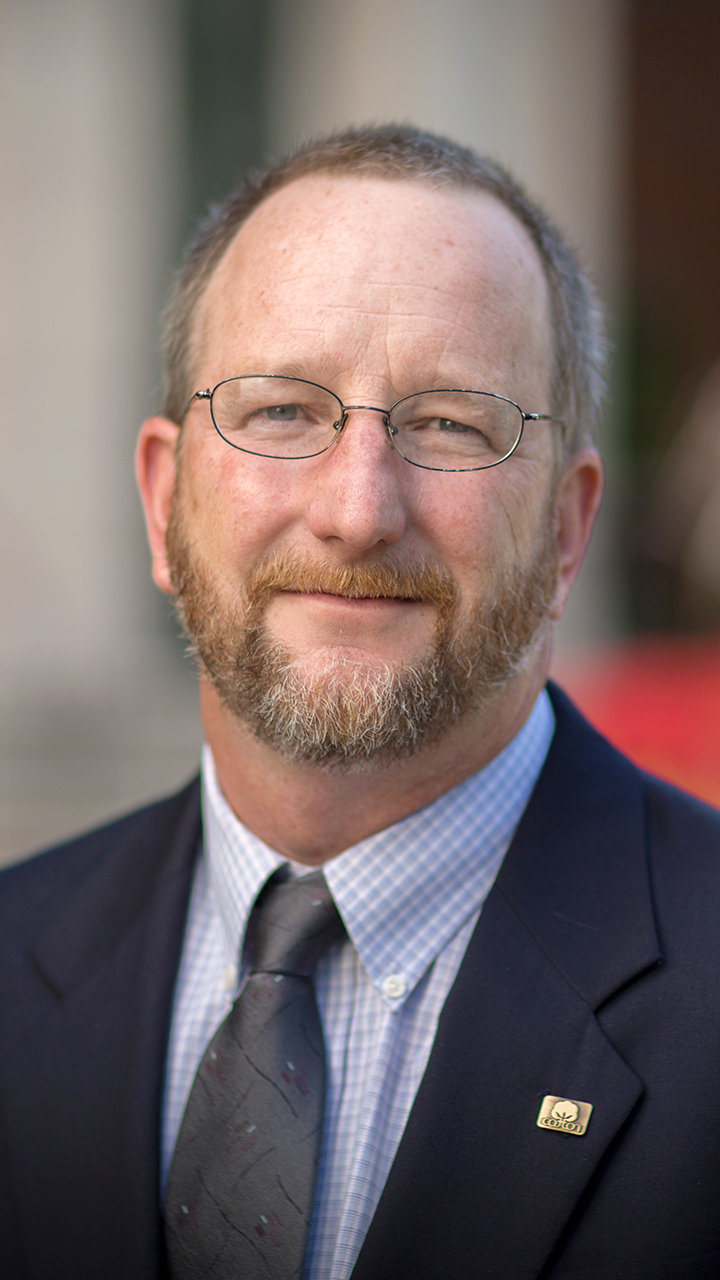
Ed Barnes (Cotton Incorporated)
Jeremiah Davis (Auburn University)
Susan Duncan (Virginia Tech University)
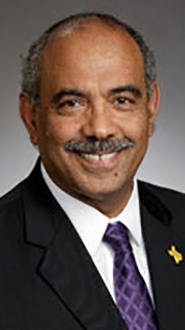
Ali Fares (Prairie View A&M University)
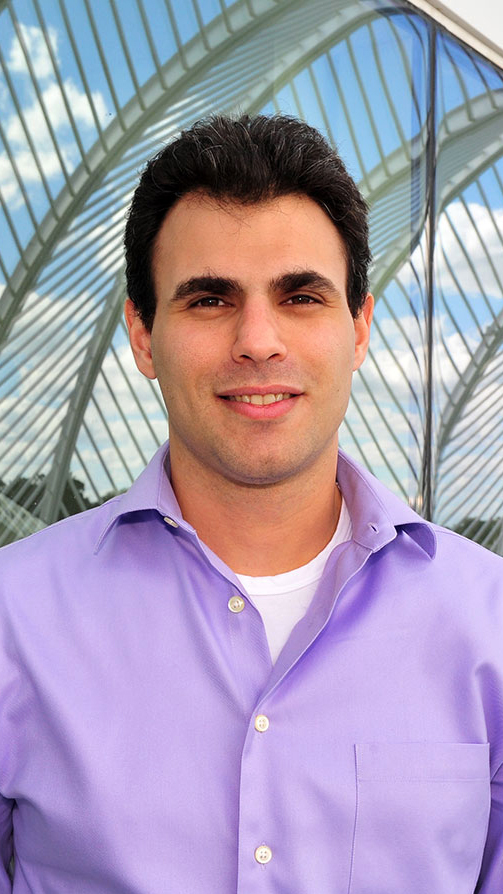
Thanos Gentimis (Louisiana State University)
Gopal Kakani (Oklahoma State University)
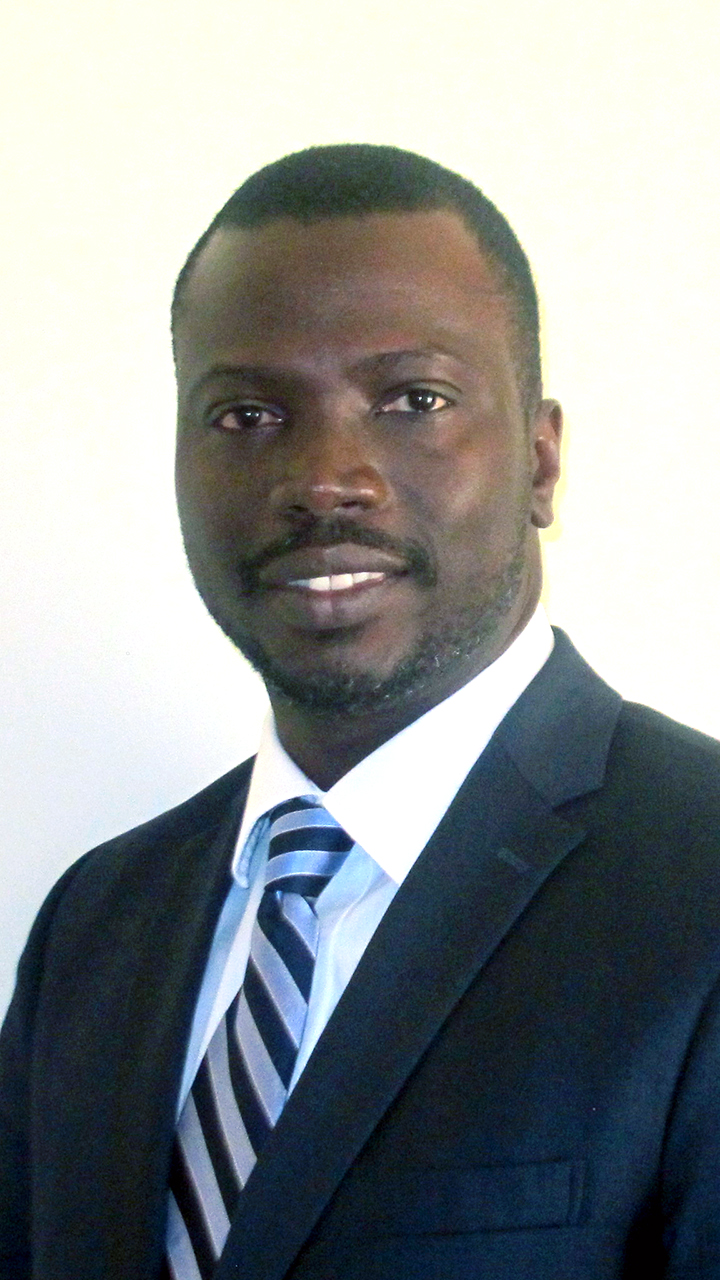
Joseph Quansah (Tuskegee University)
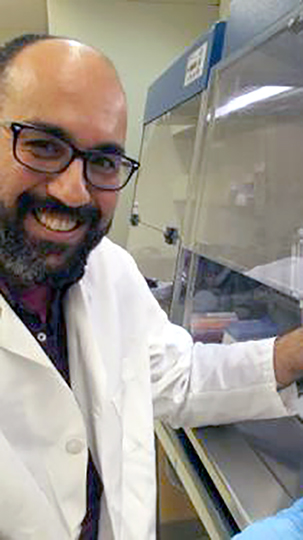
Carlos Rodriguez (University of Kentucky)
Jeyam Subbiah (University of Arkansas)
Di Tian (Auburn University)
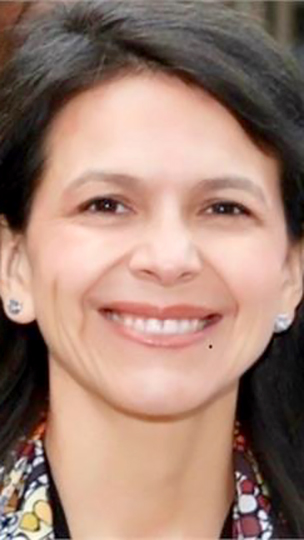
Margarita Velandia (University of Tennessee)
Timothy M Young (University of Tennessee)



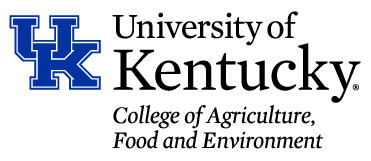
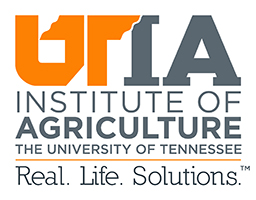
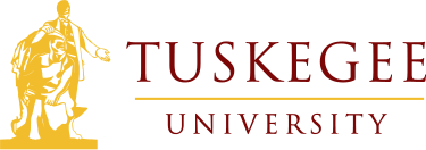
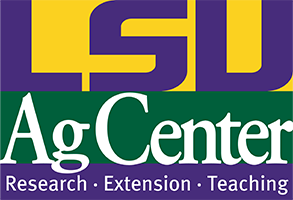



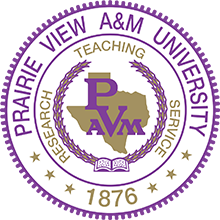
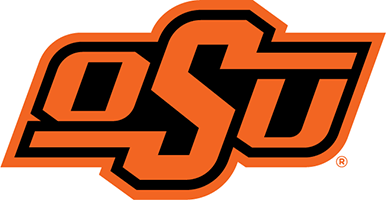






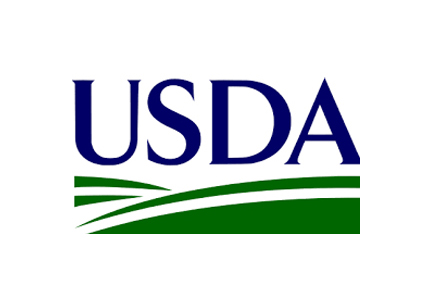

CONFERENCE FORMAT & VENUE
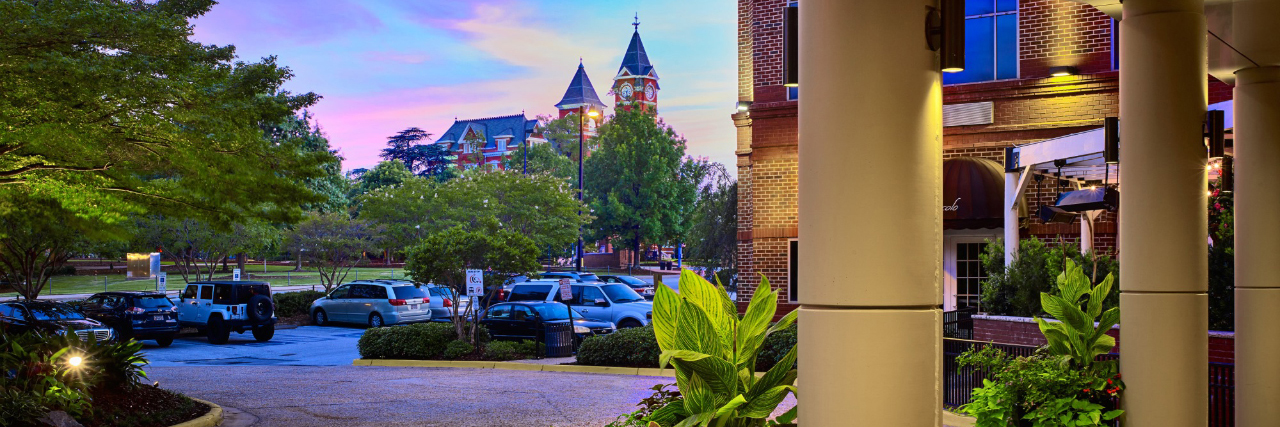
This two-and-half-day conference will include a combination of invited plenary presentations, two-panel sessions, nine concurrent breakout sessions that include invited oral presentations, six facilitated working sessions, a poster session, and a pre-conference workshop on current and advanced AI-driven data analysis.
The Hotel at Auburn University & Dixon Conference Center
241 S College St, Auburn, AL (AUHCC)
*Note – Limited special hotel room rate for the conference hotel
Other hotels are also available within blocks of the Auburn University campus:

